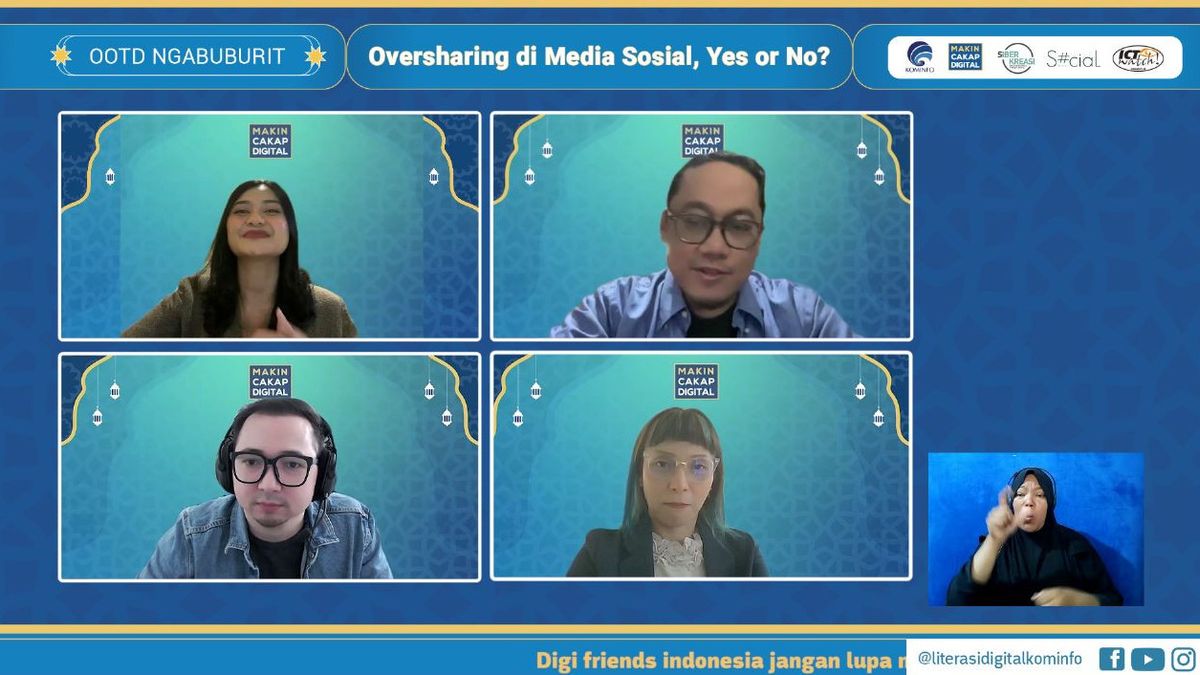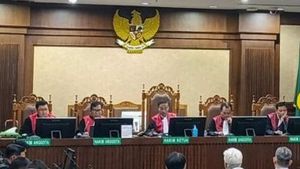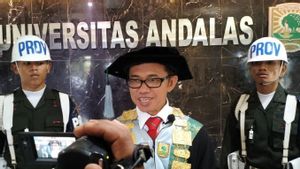JAKARTA - Social media is not only a place to communicate, but also to share information, both private and public.
For some people, social media is used as a place to work, comment, and share stories. At some point, this activity can become excessive in the form of photos, videos, or personal information. Not a few social media users who are not aware have shared detailed information that is private and confidential.
From this appeal, Kominfo Bersama GNLD Siberkreasi held an Obral Obbrol Digital Literacy (OOTD) Ngabuburit with the theme Oversharing on Social Media, Yes or No?" on Thursday, March 23.
Clinical psychologist Liza Marielly Djapprie explains the reasons behind the behavior of oversharing rooted in each other's personal emotions. First, the role of emotions encourages a person to share something. Second, the role of a status that seeks to show a certain image of themselves to the general public.
These two things are why individuals become oversharing. Either because that's why his emotions are really blowing up whatever it's his emotions or the second because he's looking for status earlier," he explained.
Liza said, however, the attitude of sharing has indeed become a human character as a psychological creature who wants to be connected to the outside world. However, she suggests rethinking the motivation behind oversharing, especially which has resulted in controversy.
Before the thumbs move (tipping something), first ask why I want to post this? Maybe that's the most important question that we have to introspect before we post it," said Liza.
Digital literacy activist Indriyatno Banyumurti explained that the boundaries between the public and private are unclear, so that some people oversharing on social media. In addition, he explained that there is a risk of personal data theft that arises from excessive sharing behavior.
"So the risk is that we can get the possibility to become victims of cyber crime," said Indriyatno.
Indriyatno shared the principle to avoid oversharing behavior, namely being wise during online activities and thinking or stopping before sharing information or pause before posting. Another tip is to position yourself as someone else who will see the information we will share. In this way, one can understand more clearly what to share or not.
As a content creator and also Deputy Chairperson for CyberCreativity Development, Edho Zell, shared steps on how to create and share quality content, so as to avoid oversharing. The first thing that can be done is to find personal interests which can later become a concept of regular content. Then, focus on content that is beneficial rather than personal information, especially those that are sensitive to cybercrime.
Even if it was a vlogger who shared daily activities, Edho Zell reminded that there were signs that must be obeyed. In addition, how to communicate and present content also affects negative reactions from the audience.
The English, Chinese, Japanese, Arabic, and French versions are automatically generated by the AI. So there may still be inaccuracies in translating, please always see Indonesian as our main language. (system supported by DigitalSiber.id)













